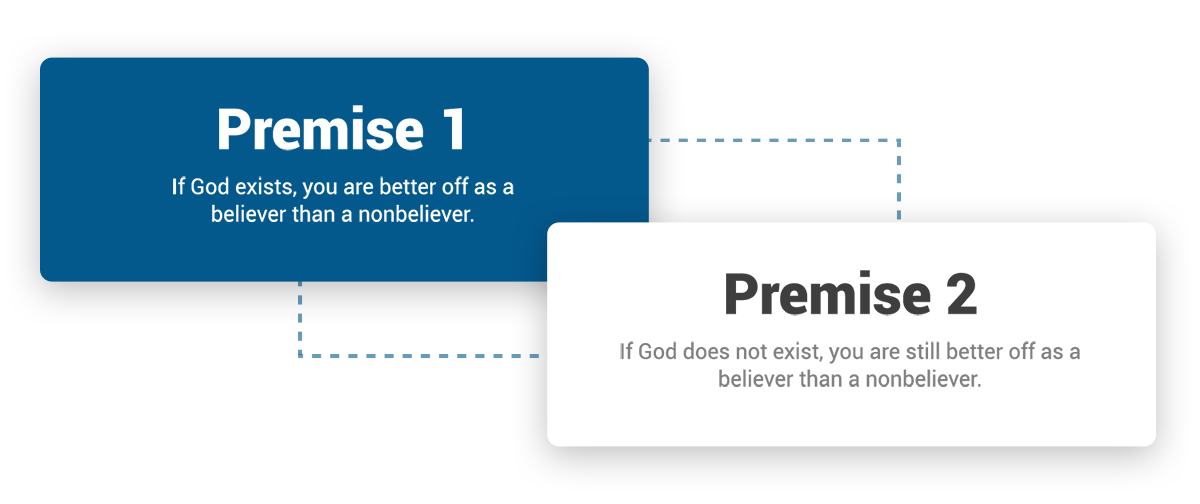WHAT’S THE MEANING OF EASTER?
WHAT’S THE MEANING OF EASTER?
Let’s Explore The Answer
Let’s Explore The Answer
While Easter has largely become a mainstream holiday, its roots are in Christianity alone. With the commercialization of Easter — including candy sales, egg hunts, and appearances from the Easter bunny — it’s easy to overlook the true meaning of the holiday. Let’s explore the origins of Easter and the real meaning behind it.
Living On The Edge
Learn More About God
Sign up to gain immediate access to free sermon MP3s, devotionals, blog content, and more.


What The Bible Says
In many streams of Christianity, Easter is even more important than Christmas. Why? Because it celebrates Jesus’ divinity and the purpose of His coming to the earth. The Easter holiday commemorates Jesus’ resurrection from the dead and His promise of eternal life to all who believe in Him.
The account of Jesus’ resurrection can be found in all four of the Gospels — Matthew, Mark, Luke, and John. Each book (Matthew 28, Mark 16, Luke 24, and John 20) tells a slightly different account of the story from the authors’ differing perspectives. What’s consistent across all books is that Jesus was previously in the tomb where He was buried after his crucifixion and that His body was mysteriously gone after three days.
In some accounts, Jesus Himself appears; in others, it’s angels that bring the news of His resurrection. But in any case, Jesus’ body has been removed from the tomb without explanation. The Biblical accounts then tell of Jesus appearing to Mary Magdalene, the disciples, and other followers (Acts 1) before finally ascending into Heaven.
For three days following His crucifixion, believers at the time questioned whether Jesus really was the Son of God. By all appearances, it seemed death had defeated Him. But upon His resurrection, He proved that He was not just a human but divine. The apostle Paul summarizes the sequence of events in 1 Corinthians 15:3-8 when he says, “Christ died for our sins according to the Scriptures, that he was buried, that he was raised on the third day according to the Scriptures, and that he appeared to Cephas, and then to the Twelve. After that, he appeared to more than five hundred of the brothers and sisters at the same time, most of whom are still living, though some have fallen asleep. Then he appeared to James, then to all the apostles, and last of all he appeared to me also…”
This account is a declaration of what Christians believe: that Jesus Christ came to earth, died for the sins of humanity, and defeated the powers of death through His resurrection. Easter is the yearly celebration of this miracle and the hope for believers of their life in Christ, which includes the forgiveness of all their sins and the promise of their eternal life.
What would happen if you embraced the possibility that the God of the Bible really did create the world and really does care for you?
Pascal’s Wager

In the seventeenth century, a famous philosopher and mathematician, Blaise Pascal, encouraged people to make a wager when it came to belief in God. If a person chose to believe in God and God did exist, that person would gain everything (eternal life). If a person chose to believe in God and God did not exist, that person would lose nothing. On the other hand, if a person chose not to believe in God and he was right, he would lose nothing. But if that person did not believe in God and he was wrong- he would lose everything (lose eternal life).
This wager can be said another way:

Based on this logic, Pascal suggested the rational person would choose to believe in God as believing offers a person everything (eternal life) while losing nothing. Wherever you are in your faith journey, would you consider taking Pascal’s wager? If the good God of the Bible exists, you have nothing to lose and everything to gain by believing in Him today.
We’d Like to Provide More Resources to Help You Learn About God
To stay in touch with weekly resources from our team, fill out your information below.
